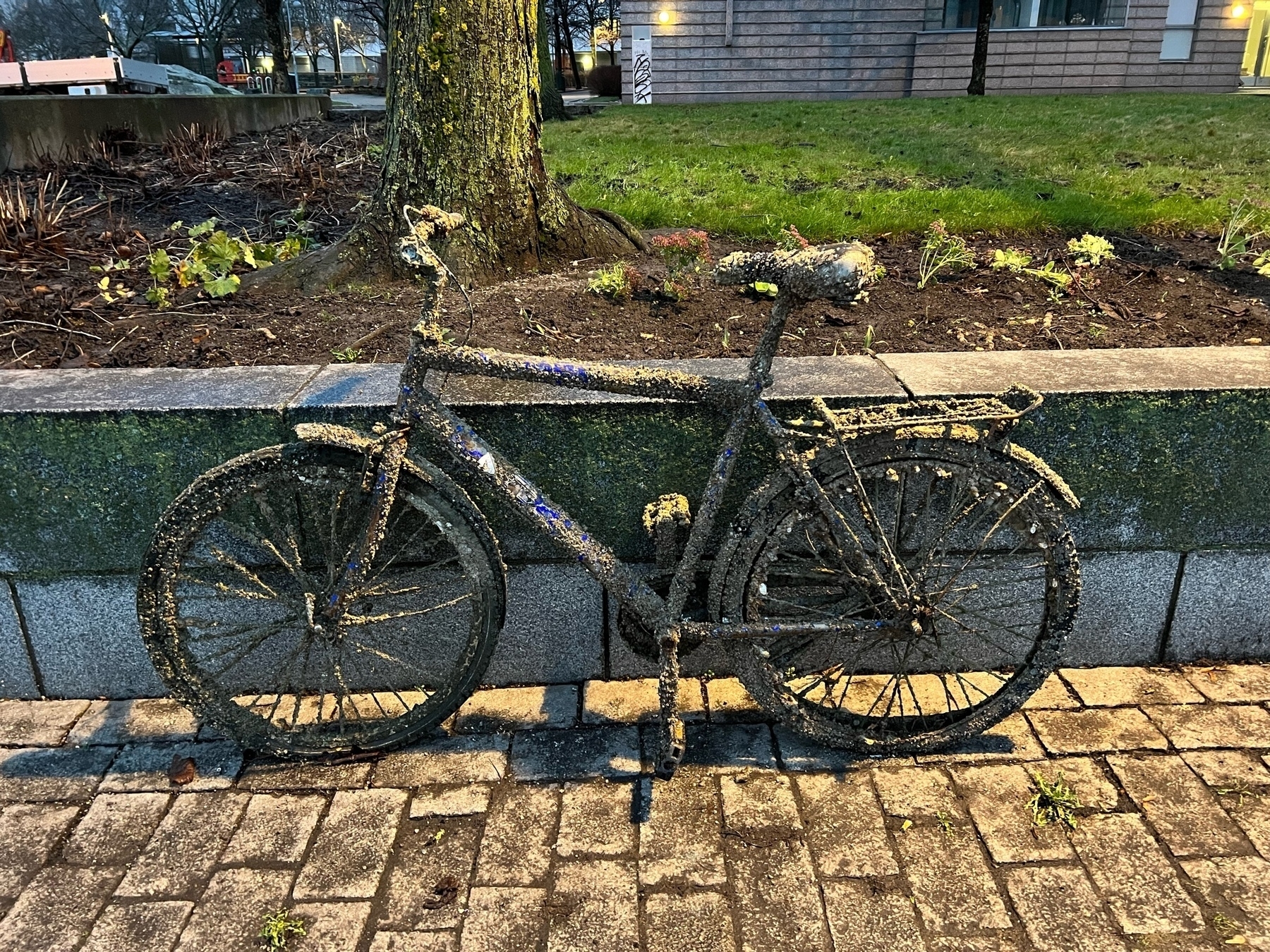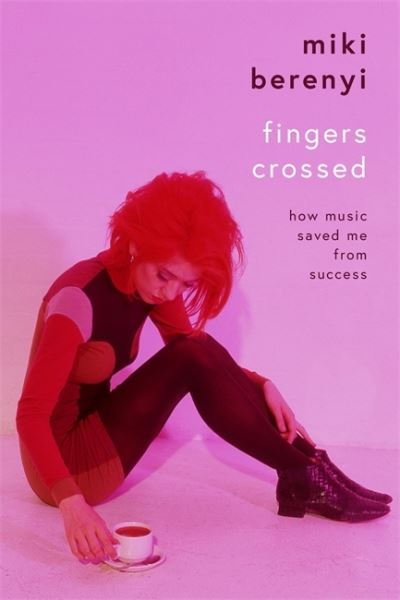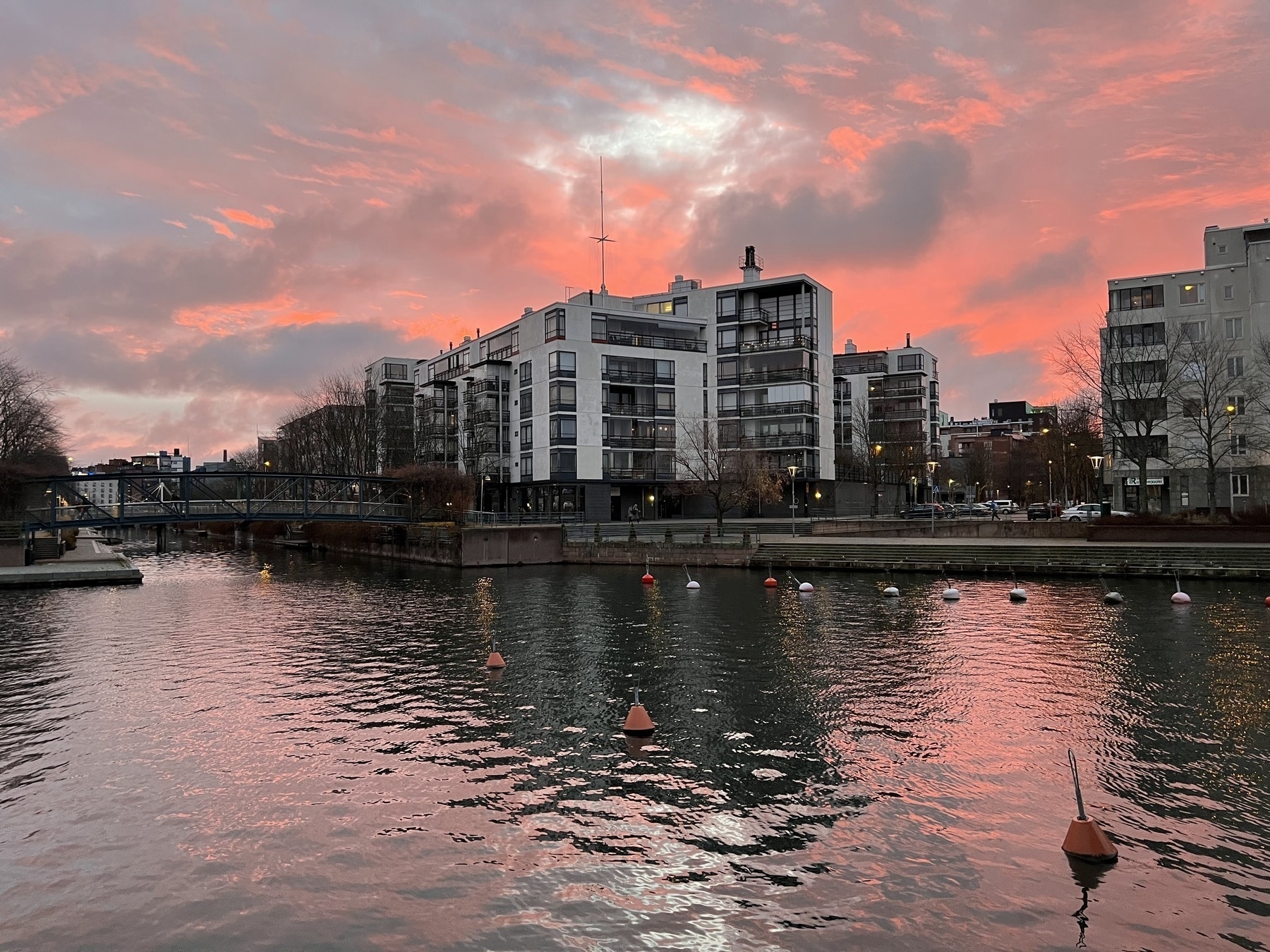lewism
Between 2011-2016 The Guggenheim Museum tried and failed to set up one of it’s Franchise art galleries in Helsinki. So not quite as successful as McDonalds which first came to Finland in 1984 and currently has 67 Restaurants.
Walking to work this morning there was a bike beside the canal covered in barnacles. Someone must have pulled it up from the canal bed and just left it there.

Pasi Herranen of Aalto university has developed a greenhouse without any glass. A wooden box internally coated with aluminium foil that uses 50% less energy and 95% less water than a traditional glass greenhouse.
An interesting map of Mastodon instances Mastodon Near Me Via The Map of the Fediverse
First, the actual journey, where everything happened by chance…following that a second journey beside the writing desk…in retrospect, what took place at the writing desk was more real, although I did leave out many details from the reality of what took place. - Göran Schildt
Matti Nykänen the greatest ski jumper of all time however could not adjust to normal life. An interesting theory to explain this is the Orchid hypothesis that something inherrant in an orchid child gives them a chance at genius but also includes the seeds for their downfall.
8 & 9 in Finnish are kahdeksan and yhdeksan, literally two before ten and one before ten. My suspicion, it comes from hand counting. 8 & 9 are easier to count down from ten using your hands and not writing them down. Maybe an echo of a old tradition of Hand Mnemonics
The Savoy Vase designed by Aino and Alvar Aalto was put on display for the 1937 World Fair in Paris. Designed for the Savoy Hotel Restaurant in Helsinki it has gone on to become a kind of short-han] for Finnish modern design.
A minister invented the pronoun hän for God and added it to the Finnish language to elevate God from men woman and animals, who were all referred to as se up to then. Instead Finns just kept on using hän as though it were se also. See jayless for a longer explaination.
In Finland traditionally the Sauna is a seperate building within an enclosure of many buildings each with certain functions. The Sauna in Finland was where you were born into the world and when you died where you were laid out.
What was Finlandisation?
Today’s consensus is that Finland was not really independent. It was a time in which domestic and foreign policy could not be separated because what Moscow thought, or possibly thought, had to be always factored in. - observingfinland
A favourite insight of mine The Helsinki Bus Station Theory of creativity.
This goes on all your creative life: always showing new work, always being compared to others." What’s the answer? “It’s simple. Stay on the bus. Stay on the fucking bus.” - Arno Rafael Minkkinen
Helsinki’s Pitkäsilta Bridge full of traffic and life on any given day still bears the bullet and shrapnel marks from the civil war over a hundred years ago. An echo of history if you stop and look.
Every man in Finland is required to do national service, people from the Åland islands are exempt. Women can volunteer. Service can be military or non-military.
Admiration for Finland which drinks the most coffee per capita in the world at 26.45 lbs (12kg) per person, most of it bad.
In 1820 James Finlayson was granted a License for a mill by the banks of the Tammerkoski. The company Finlaysons would build their own daycare, school, hospital, library and church. They had their own currency and in 1882 they switched on first electric light in Scandinavia.
A midnight sun paints dusk as a mirror image into the waters of Saimaa. We sit in a lopsided boat chugging out with thirty other revellers. On a rock a fire, only the flames reflect in the lake water. Then as the day changes we go back to the land to feast some more.
All spoken languages are the same age, they have all changed from a past form and are all changing continuously towards a future form. At some moment in time they change less or more that is all. A figure of at least 100,000 years is often given as the age of all human language.
Finished reading: Babel by R. F. Kuang 📚
I write entirely to find out what I’m thinking, what I’m looking at, what I see and what it means … Why did the oil refineries around Carquinez Strait seem sinister to me in the summer of 1956? Why have the night lights in the Bevatron burned in my mind for twenty years? What is going on in these pictures in my mind?
- Joan Didion quoted by Eliza Gabbert in Why Write? Paris Review @challenges 📚
Started reading: Catalogue Of Shipwrecked Books: by Edward Wilson-Lee 📚
Fingers Crossed a Review 📚

Madchester, Shoegaze and Grunge were a few of the scenes that I was introduced to in my first couple of years at college when I first left home at the beginning of the nineties. Bands like Ride, Happy Mondays, Cocteau Twins, The Fall, Pavement, Nirvana and of course Lush. At that time of life it’s often through music that you identify yourself and so those bands will always have a special feeling for me, everyone has their own band hiastory maybe.
Now some thirty years later Miki Berenyi the lead singer from Lush has an autobiography out Fingers Crossed: How Music Saved Me from Success, and it really is an involving, agoninzing and engaging read.
The book is split into two parts, Miki’s childhood growing up in London and then her time wtih the band Lush. Certainly there is a hell of a story to tell. Her upbringing is really unusual and at many points quite harrowing. This is all told delicately and with great skill, the worst of it is not really highlighted but it’s all there, involving but not showy, better and more involving writing than most biographies.
The second part of the book covering the band years is also fascinating and a knowledge of the bands is not necessary, Miki’s story is enough. The bad behaviour, sexism and hedonism is a timeless trope but it’s written about calmy and Miki doesn’t spare herself.
For my part I think Lush were underrated at the time and their melodies and lyrics are better and more intereting than most of their contemporaries. After reading the book forinsance I went back to their back catalogue. The lyrics from Light From a Dead Star especially hit hard…. It was all there in the lyrics for anyone to see all this time.
Overall it is a fantastic book that I loved and that I would recommend to anyone regardless of their own band history! 📚★★★★★
Lyrics from Light From A Dead Star
He lives his life in a world
Full of women and he takes
What he wants from their love
And he throws the rest away
I cling to him and pray
But still, he slips away
And now it’s just too late
To wish him back again
She won’t put up with this life
So she leaves him and she finds
Someone else, falls in love
And she travels far away
I say that it’s okay
And swallow all my pain
And now it’s just too late
To wish her back again
They left me here on my own
In a nightmare and I just
Can’t forgive any more
So I smile and I turn away
Don’t listen when they say
They wish that I could stay
And now it’s just too late
To wish me back again -Miki Berenyi
§ Book Index
This is a list post of the short book reviews I have made here.
Non-Fiction
- Twilight of Democracy by Anne Applebaum ★★★★
- A Place To Read by Michael Cohen ★★★★★
- Killers of The Flower Moon by David Grann ★★★★★
- The Lost City of Z by David Grann ★★★★
- Fingers Crossed by Miki Berenyi ★★★★★
- A Brief History of Equality by Thomas Piketty ★★★★
- A Life Lived Remotely by Siobhan McKeown ★★★★
- What I Talk About When I Talk About Running by Haruki Murakami ★★★
Fiction
- Empire of Silence by Christopher Ruocchio★★★
- This Is How You Lose the Time War ★★★★★
- Babel-17 by Samuel R. Delany ★★★★
- System Collapse by Martha Wells ★★★
- The Alienist by Caleb Carr ★★★★
- House of Suns by Alastair Reynolds ★★★★★
- The Dark Forest by Cixin Liu ★★★★
- The Three Body Problem by Cixin Liu ★★★★
- Where the Crawdads Sing by Delia Owens ★★★★
- The Library of The Dead by T.L.Huchu ★★★★
- Neuromancer by William Gibson ★★★★★
- Alone in Berlin by Hans Fallada ★★★★★
- The Ministry of the Future by Kim Stanley Robinson ★★★
- Winter Counts by David Heska Wanbli Weiden ★★★★
My Autumn / Fall Reading List 2022 📚
The Autumn is always busy so the list is even more unachieveable than normal! There is nothing yet from the horror genre either and with the nights closing in and Halloween on the way I feel like I would like to add a few of those but have yet to look around for some recommendations in that genre.
Michael Cohens follow up to one of my summers favourite books is there also. Maybe I need to add some more fiction there too, especially for Audiobooks I prefer a fiction book i am much less tempted to take notes on! So I expect things to move around a little as the autumn progresses.
This is what it looks like at the moment.
- And Other Essentials by Michael Cohen
- The Three Body Problem by Cixin Liu
- Underland by Robert Mscfarlane
- Stealing From the Saracens by Diana Darke
- Antwerp by Michael Pye
- Survival or the RIchest by Douglas Rushkoff
- Braifing Sweetgrass by Robin Wall Kimmerer
- Saga Land the Island Stories at the End of the World by Richars Fdler & Karo Gislason
- The Premonitions Bureau by Sam Knight
- Book Lovers by Emily Henry
- The Color of Law by Richard Rothstein
